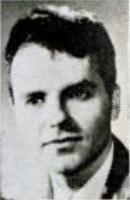This week in The History of AI at AIWS.net – computer scientist James Robert Slagle developed SAINT in 1961. SAINT stands for Symbolic Automatic INTegrator. It was a heuristic program that could solve symbolic integration problems in freshman calculus. The machine was developed as a part of Slagle’s dissertation at MIT, with Marvin Minsky’s help. SAINT is considered the the first expert system. An expert system is a system that performs at the level of a human expert. SAINT was also one of the first projects that tried to produce a program that can come close to surpassing the Turing test as well.
James Robert Slagle is an American computer scientist. He worked on SAINT for his dissertation at MIT with Marvin Minsky. Slagle would receive his PhD in Mathematics from MIT later on in 1961. He’s a Professor in Computer Science with appointments in universities such as MIT, Johns Hopkins, UC Berkeley, and University of Minnesota.
Marvin Minsky also played a role in this project, as Slagle worked with him for this section of his dissertation. He would go on to be an important pioneer in the field of AI. He penned the research proposal for the Dartmouth Conference, which coined the term “Artificial Intelligence”, and he was a participant in it when it was hosted the next summer. Minsky would also co-founded the MIT AI labs, which went through different names, and the MIT Media Laboratory. In terms of popular culture, he was an adviser to Stanley Kubrick’s acclaimed movie 2001: A Space Odyssey. Minsky won the Turing Award in 1969.
The full dissertation can be found here. This project and dissertation is special in regard to AI, due to it being another step in its development, most notably for being the first expert system. Albeit it was only a minor project, the HAI initiative regards it as another pioneering attempt in the History of AI.
